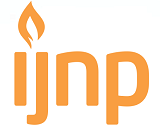The Relationship Between Anemia and Nutritional Status with the Occurrence of Fatigue in Children with Cancer Undergoing Chemotherapy at Dharmais Cancer Hospital in Jakarta
Abstract
Background: The challenge of fatigue significantly affects children undergoing cancer treatment, impacting their overall well-being and quality of life. Unlike their healthy counterparts, pediatric cancer patients grapple with the demanding impacts of chemotherapy, leading to anemia and nutritional deficiencies that exacerbate fatigue. Beyond fatigue, chemotherapy alters appetite, nutrient utilization, and mental function. Fatigue's multidimensional impact, marked by reduced energy and increased need for rest, can detrimentally affect the quality of life for pediatric patients. Understanding these challenges is essential for devising tailored strategies that comprehensively address the unique needs of children undergoing cancer treatment, enhancing their overall well-being and quality of life.
Objective: This research aims were to determine the relationship between anemia and nutritional status with the occurrence of fatigue in children with cancer undergoing chemotherapy at Dharmais Cancer Hospital in Jakarta.
Methods: An analytical cross-sectional study conducted in August 2022 included a sample of 24 children selected through accidental sampling. Demographic and disease characteristics, such as age, gender, cancer type, cancer stage, and treatment duration, were collected through a questionnaire. Anemia was determined by hemoglobin levels (<12 mg/dl), and nutritional status was assessed using Body Mass Index. Fatigue was measured with tailored instruments for different age groups: the Parent Fatigue Scale (PFS) for children under 7 years and the Child Fatigue Scale (CFS) for those aged 7 years and older. Statistical analyses included univariate assessment, bivariate analysis with the chi-square test, and logistic regression.
Results: Demographic analysis revealed a predominantly male sample (70.8%) with a significant adolescent presence (41.7%) and a prevalence of leukemia (37.5%). Most participants were in early cancer stages (58.3%), undergoing treatment for over a year (62.5%). Anemia was common (54.2%), and 58.3% were underweight. High fatigue prevalence was observed (62.5%). Chi-square analysis found no significant gender or cancer stage differences in fatigue. Age and treatment duration showed no significant associations with fatigue. Logistic regression revealed a significant association between anemia and fatigue in the first model (p = 0.022, Exp. B = 0.104). The second model, incorporating nutritional status, showed a non-significant relationship with anemia but a notable association with normal nutritional status and fatigue (p = 0.022, Exp. 0.059). This underscores the crucial role of nutritional interventions in mitigating fatigue.
Conclusion: This study highlights a significant relationship between anemia and nutritional status with fatigue in children undergoing chemotherapy. These findings underscore the importance of considering anemia and nutritional interventions when providing care to pediatric cancer patients undergoing chemotherapy. Nurses play a vital role in addressing these concerns and enhancing the overall well-being of children with cancer.
Keywords
Full Text:
PDFReferences
Astriani, I. G. A. D. (2019). Hubungan Psychological Well-Being Orang Tua terhadap Kualitas Hidup Anak dengan Kanker di Yayasan Peduli Kanker Anak Bali. Universitas Udayana
Allenidekania, Kusumasari, Bangun, & Lukitowa. (2012). Influencing factors in cancer related fatigue in hospitalized children in Jakarta. Directorate of Research and Community Engagement Universitas Indonesia.
Ben-Baruch, A. (2022). Tumor Necrosis Factor α: Taking a Personalized Road in Cancer Therapy. Frontiers in Immunology, 13. https://doi.org/10.3389/fimmu.2022.903679
Bastani, F., Khosravi, M., Borimnejad, L., & Arbabi, N. (2015). The effect of acupressure on cancer-related fatigue among school-aged children with acute lymphoblastic leukemia. Iran J Nurs Midwifery Res, 20(5), 545–551. https://doi.org/10.4103/1735-9066.164508
Cherwin, C. H. (2012). Gastrointestinal symptom representation in cancer symptom clusters: a synthesis of the literature. Oncology Nursing Forum, 39(2), 157–165. https://doi.org/10.1188/12.ONF.157-165
da Silva, M. C. M., Lopes Júnior, L. C., Nascimento, L. C., & de Lima, R. A. G. (2016). Fatigue in children and adolescents with cancer from the perspective of health professionals. Revista Latino-Americana de Enfermagem, 24, 1–10. https://doi.org/10.1590/1518-8345.1159.2784
Erickson, J. M., Beck, S. L., Christian, B., Dudley, W. N., Hollen, P. J., Albritton, K., ... & Godder, K. (2010, July). Patterns of fatigue in adolescents receiving chemotherapy. In Oncol Nurs Forum (Vol. 37, No. 4, pp. 444-455).
Fernandes, A. (2020). Kelelahan Pada Anak Dengan Leukemia Limfoblastik Akut Dalam Menjalani Kemoterapi Fase Induksi. JURNAL KESEHATAN PERINTIS (Perintis’s Health Journal), 7(1), 69–74. https://doi.org/10.33653/jkp.v7i1.411
Fetriyah, U. (2020, July). The Level of Fatigue in Children with Leukemia. In Proceedings of the First National Seminar Universitas Sari Mulia, NS-UNISM 2019, 23rd November 2019, Banjarmasin, South Kalimantan, Indonesia.
Grain Audrey , Margaux Camuset, Christèle Gras-Leguen, Jean-Benoit Hardouin, Pauline Scherdel, Dominique Caldari. (2023). Taste and smell alterations affect nutritional status in children under chemotherapy. Acta Paediatrica. https://doi.org/10.1111/apa.16889
Hasanah, N., & Mardiyana, E. (2023). Frontiers in Community Service and Empowerment Multidisciplinary : Rapid Review : Open Access Journal Empowering Cadres through Knowledge and Practice to Improve Early Detection of Cancer (Leukaemia) in Children in Surabaya, Indonesia. 2(1), 15–21. https://doi.org/10.35882/ficse.v2i1.31
Hendrawati, S., Nurhidayah, I., Mediani, H. S., & Mardhiyah, A. (2019). The Incidence of Mucositis in Children with Chemotherapy Treatment. Journal of Nursing Care, 2(1), 23–31. https://doi.org/10.24198/jnc.v2i1.20129
Hockenberry, M.J., Wilson, D., & Rodgers, C. (2017). Wong’s Essentials of Pediatric Nursing (10th ed.). Elsevier.
Hooke, M. C., & Linder, L. A. (2019). Symptoms in children receiving treatment for cancer—Part I: Fatigue, sleep disturbance, and nausea/vomiting. Journal of Pediatric Oncology Nursing, 36(4), 244-261.
Ismuhu, S., Rakhmawati, W., & Fitri, S. Y. R. (2020). Akupresur: Alternatif Mengurangi Mual Dan Muntah Akibat Kemoterapi Literature Review. Journal of Nursing Care, 3(3). http://jurnal.unpad.ac.id/jnc/article/view/24502
Keener, T. A. (2018). Childhood Cancer-Related Fatigue and Day-to-Day Quality of Life. Journal of Pediatric Oncology Nursing, 36(3). https://doi.org/10.1177/1043454218818062
Kudubes AA, Bektas M, Mutafoğlu K. (2019) The effect of fatigue-related education on pediatric oncology patients fatigue and quality of life. J Cancer Educ.;34:1130–1141.
Khalili, A., Mohammadi, F., Doosti-Irani, A., Esfahani, H., & Moeinifard, M. (2023). Energy efficiency training’s effect on fatigue scores of children with a cancer diagnosis. Frontiers of Nursing, 10(3), 307–313. https://doi.org/10.2478/fon-2023-0023
Lima, M. S., Gabriel, C. Í. M., Costa, A. C. S. de M., Aquino, M. J. das V., & Cipolotti, R. (2023). Correlation between fatigue and quality of life in patients pediatric oncology. Research, Society and Development, 12(1), e17312126892. https://doi.org/10.33448/rsd-v12i1.26892
Mahdizadeh, F., Mehraban, A., Faranoush, M., Amini, M., & Mehdizadeh, M. (2020). Fatigue in Children with Cancer: Reliability and Validity of the Persian Version of Child, Parent, and Staff Fatigue Scale. Asia-Pacific Journal of Oncology Nursing, 7(2), 174–179. https://doi.org/10.4103/apjon.apjon_44_19
Ministry of Health Republic of Indonesia. (2021). Situasi penyakit kanker. Pusat data dan informasi Kementerian Kesehatan RI. Ministry of Health Republic of Indonesia.
Nunes, M. D. R., Jacob, E., Bomfim, E. O., Lopes-Junior, L. C., Lima, R. A. G. de, Floria-Santos, M., & Nascimento, L. C. (2017). Fatigue and Health related Quality of Life in Children and Adolescents with Cancer. Eur J Oncol Nurs., 29, 39–46. https://doi.org/10.1016/j.ejon.2017.05.001.Fatigue
Nurhidayah, I., Hendrawati, S., & Hasriyadhi, D. P. (2020). Quality of life of family caregivers of children with leukemia: A descriptive quantitative study. Belitung Nursing Journal, 6(2), 52–58. https://doi.org/10.33546/BNJ.1041
SHussien, R., IAJabuk, S., Altaee, Z. M., & K Al-Maamori, A. M. (2023). Review of anemia: types and causes. European Journal of Research Development and Sustainability, 4(7). https://www.scholarzest.com
Utami, A., Chodidjah, S., & Waluyanti, F. T. (2020). Kadar Hemoglobin, Depresi, dan Nyeri Memperberat Kelelahan pada Anak yang Menjalani Kemoterapi. Jurnal Kesehatan Komunitas, 6(1), 1–6. https://doi.org/10.25311/keskom.vol6.iss1.366
Uzun, Z., & Kucuk, S. (2019). Side effects of chemotherapy in children with cancer: Effects of nursing training administered to caregivers. Australian Journal of Advanced Nursing, 36(4), 37–44.
World Health Organization. (2020). Childhood cancer. World Health Organization. https://www.iarc.who.int/cancer-type/childhood-cancer/#:~:text=In 2020%2C almost 280 000,cancer is difficult to diagnose.
Yasih, Y. M., & Al-hamad, A. (2015). Anxiety and Depression As Key Determinants of Cancer Related Fatigue Among Patients Receiving Chemotherapy. 11(33), 39–53.
Yayasan Onkologi Anak Indonesia. (2023). Kanker anak di Indonesia. Yayasan Onkologi Anak Indonesia. https://www.yoaifoundation.org/kanker-anak.php
Yılmaz, H. B., Gerçeker, G. Ö., & Muslu, G. K. (2016). Evaluating the cancer related fatigue by children, mothers, and nurses in Turkish pediatric oncology patients. Eur J Oncol Nurs., 23, 66–71. https://doi.org/10.1016/j.ejon.2016.05.002
Yu, H., Li, L., Liu, C., Huang, W., Zhou, J., Fu, W., Ma, Y., Li, S., Chang, Y., Liu, G., & Wu, Q. (2017). Factors associated with the quality of life of family caregivers for leukemia patients in China. Health and Quality of Life Outcomes, 15(1), 1–11. https://doi.org/10.1186/s12955-017-0628-6
DOI: https://doi.org/10.18196/ijnp.v7i2.20191
Refbacks
- There are currently no refbacks.

This work is licensed under a Creative Commons Attribution 4.0 International License.
IJNP (Indonesian Journal of Nursing Practices) are indexed by:
Office:
School of Nursing, Faculty of Medicine and Health Science, Universitas Muhammadiyah YogyakartaSiti Walidah Building F3, 4th floor.
JL. Brawijaya, Tamantirto, Kasihan, Bantul, Yogyakarta 55183
Email: IJNP@umy.ac.id
Web: http://journal.umy.ac.id/index.php/ijnp

Indonesian Journal of Nursing Practice is licensed under an Attribution 4.0 International (CC BY 4.0) license.




















.png)
